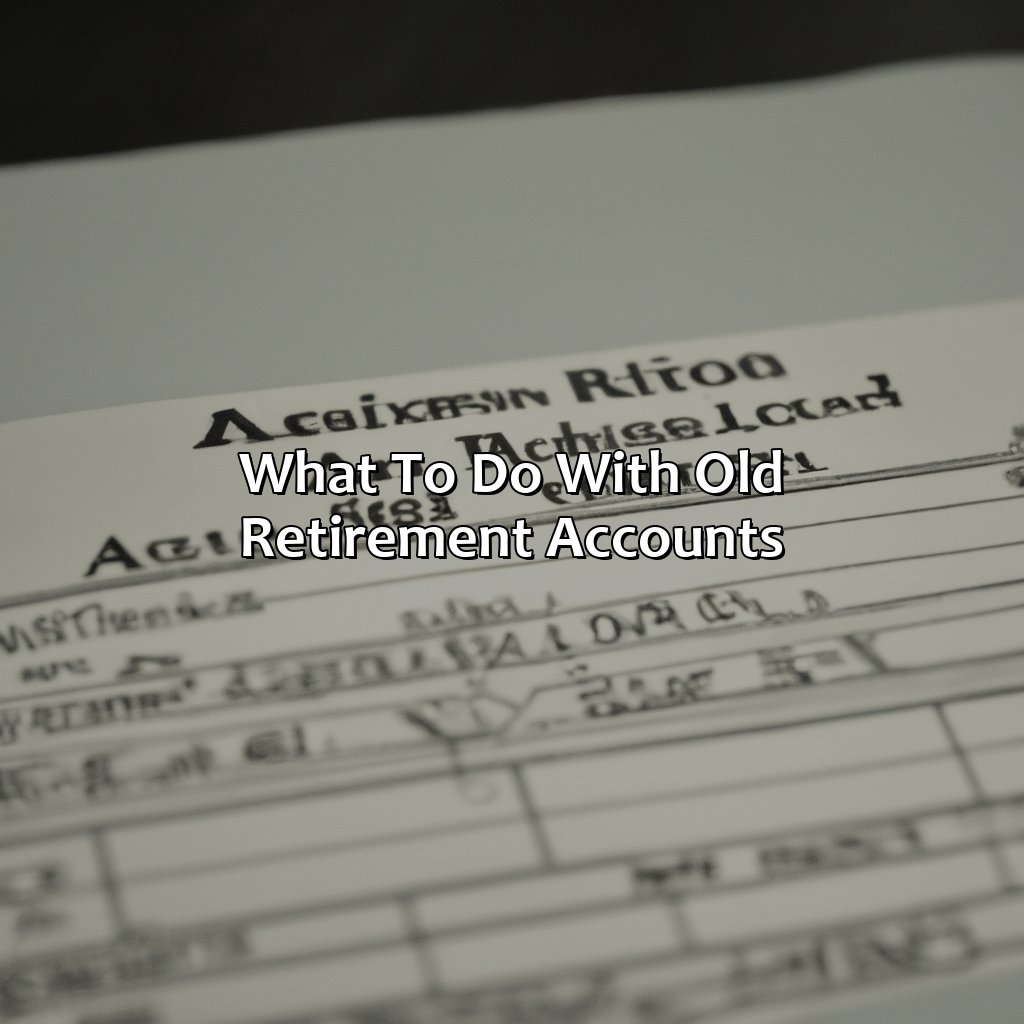What To Do With Old Retirement Accounts?
Key Takeaway:
- Consolidating old retirement accounts can simplify the management of retirement savings and potentially reduce fees and expenses. It is important to research and compare the fees and investment options of each account before making a decision.
- Investing old retirement accounts into new accounts can offer better investment options and potentially higher returns. Consider factors such as fees, investment options, and the potential tax implications before making a decision.
- Withdrawing old retirement accounts early can have potential consequences, such as taxes, penalties, and missed opportunities for growth. Consider alternative options, such as taking a loan from the account or waiting until retirement age to withdraw.
Are you overwhelmed by the information about what to do with old retirement accounts? Let us make it easy for you. You will learn the right steps to take to make sure your retirement savings are secure and available when you need it.
Consolidate Old Retirement Accounts
To optimize your retirement savings strategy, it is recommended to merge or integrate old retirement accounts. This process is known as Retirement Account Consolidation and it can help you centralize your retirement funds and gain better control over your assets.
Here is a simple 3-step guide on how to consolidate outdated retirement accounts:
- Locate and identify all your old retirement accounts.
- Choose a suitable account to transfer your retirement savings.
- Complete the transfer process by contacting the relevant financial institutions.
Make sure to keep track of any taxes or penalties that may occur due to the consolidation.
It is important to note that consolidation of retirement accounts may result in lower fees, better investment options, and easier account management.
A Pro Tip: Before consolidating your retirement accounts, consult with a financial advisor to ensure that the process aligns with your retirement goals and that it does not result in any unforeseen negative consequences.
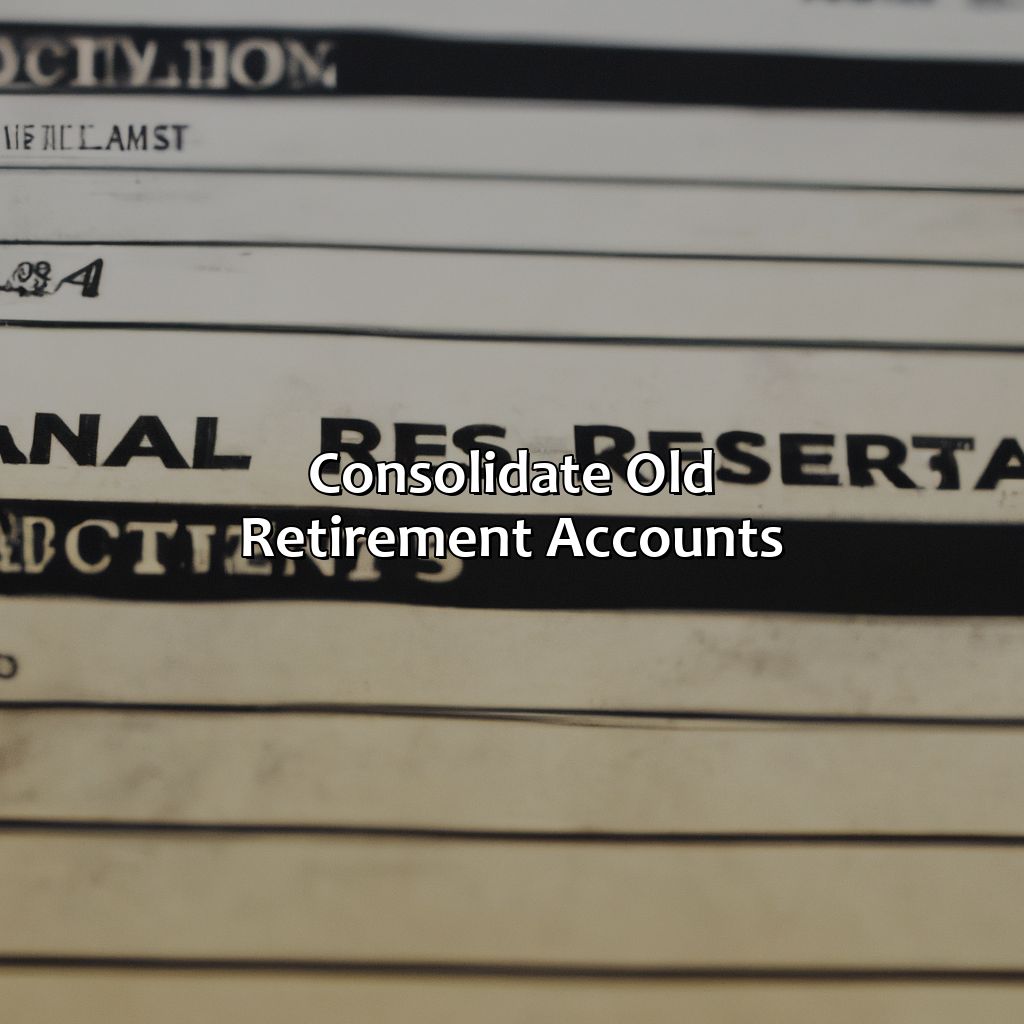
Image credits: retiregenz.com by Adam Woodhock
Invest Old Retirement Accounts into New Accounts
Investing your retired accounts into new savings vehicles is an excellent option for securing your future. You can roll over an old 401(k) into an individual retirement account (IRA) or even a new employer’s 401(k) plan. This will give you more investment opportunities, reduce fees, and make it easier to manage your retirement savings.
When you switch jobs, roll your old retirement accounts into a new one instead of cashing out. Explore various investment options and consider the fees you’ll be charged. Consider whether you want a taxable or tax-deferred account for your savings.
A Roth IRA can be a great option if you want tax-free withdrawals in retirement. If you’re self-employed, consider opening a Solo 401(k) plan. These are perfect for high-income earners who want to save more for their retirement.
Pro Tip: Make a plan and stay on top of your account so that you can keep track of your funds and avoid any unnecessary fees or penalties.
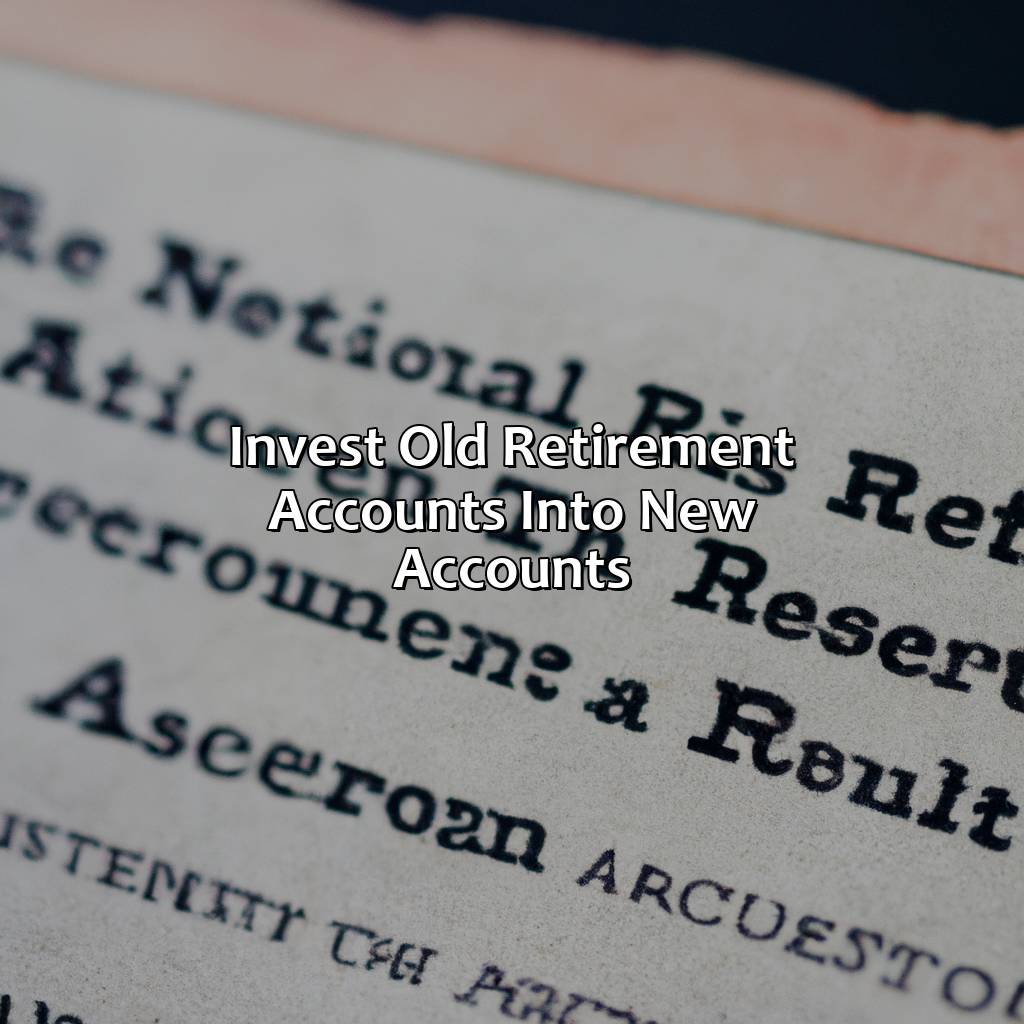
Image credits: retiregenz.com by James Washington
Withdraw Old Retirement Accounts
Old Retirement Accounts – What to Do with Them?
Withdrawing old retirement accounts can be a daunting task. Here’s a guide to help you through the process:
- Check the account type and age of the account: Review the account type, including whether it’s an IRA or 401(k) and its age, as each type may have its own rules for withdrawals.
- Understand the tax implications: It’s important to understand the tax implications of withdrawing the funds, including whether there will be any penalties or taxes applied.
- Consider your withdrawal options: You can choose to withdraw the funds or roll them over into a new account. There may also be options for partial withdrawals or taking a lump sum.
When withdrawing old retirement accounts, it’s important to understand all the options available to you. Seek professional advice to make informed decisions.
Don’t miss out on your retirement savings. Take action today to ensure your financial security in the future.
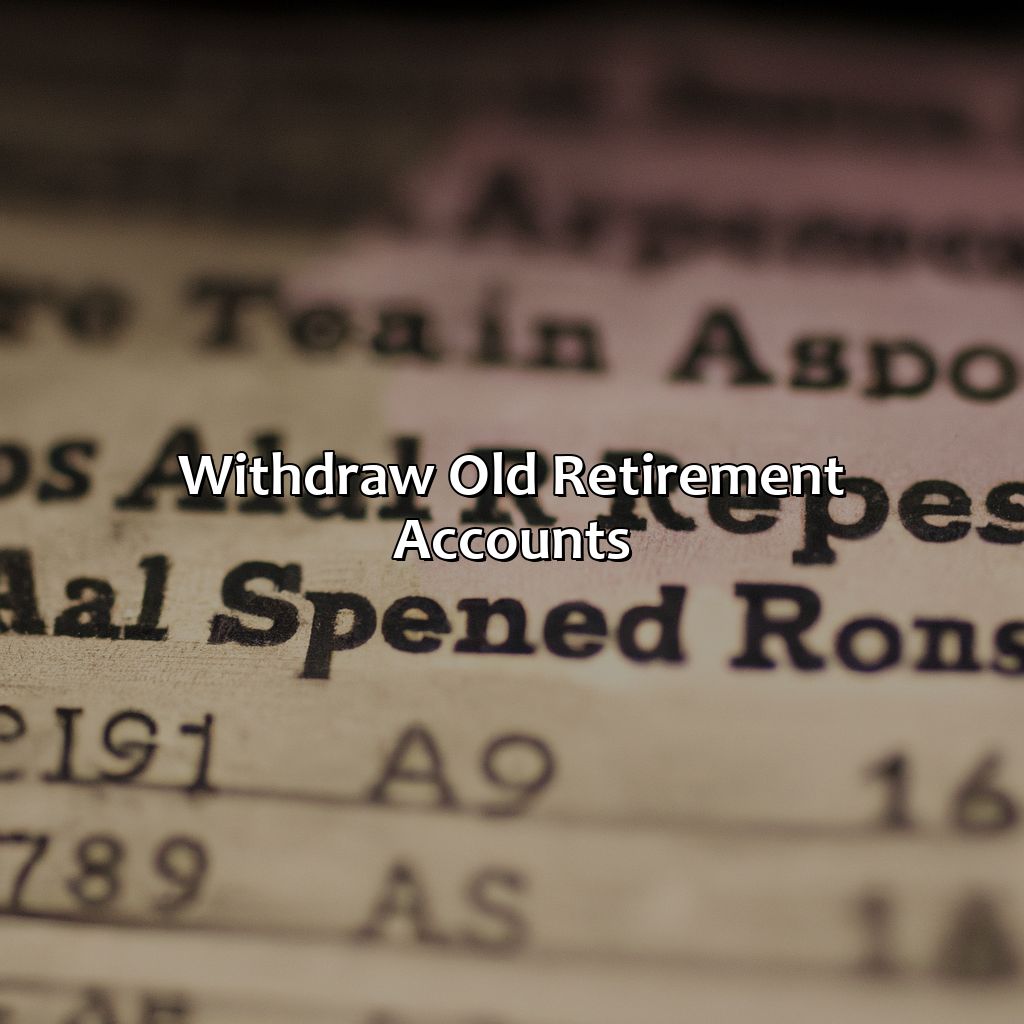
Image credits: retiregenz.com by James Woodhock
Seek Professional Assistance
As you navigate the complexities of managing old retirement accounts, consider seeking assistance from a financial expert. A professional can guide you through the process of consolidating or transferring funds, or provide advice on investment strategies that align with your goals and risk tolerance. Don’t hesitate to seek out a trusted advisor who can help you make informed decisions and optimize your retirement savings.
In addition to offering specialized expertise, a financial advisor can also help you navigate any regulatory requirements or tax implications associated with consolidating or transferring retirement accounts. They may be able to suggest additional resources or tools to help streamline the process and ensure that you are maximizing your benefits. Partnering with a knowledgeable expert can provide peace of mind and help you avoid costly mistakes.
Pro Tip: Before reaching out to a financial advisor, make sure to do your research and choose a reputable professional who has experience in retirement planning and investment management. Ask for referrals or read reviews to ensure that they have a track record of success and can provide the level of guidance you need.
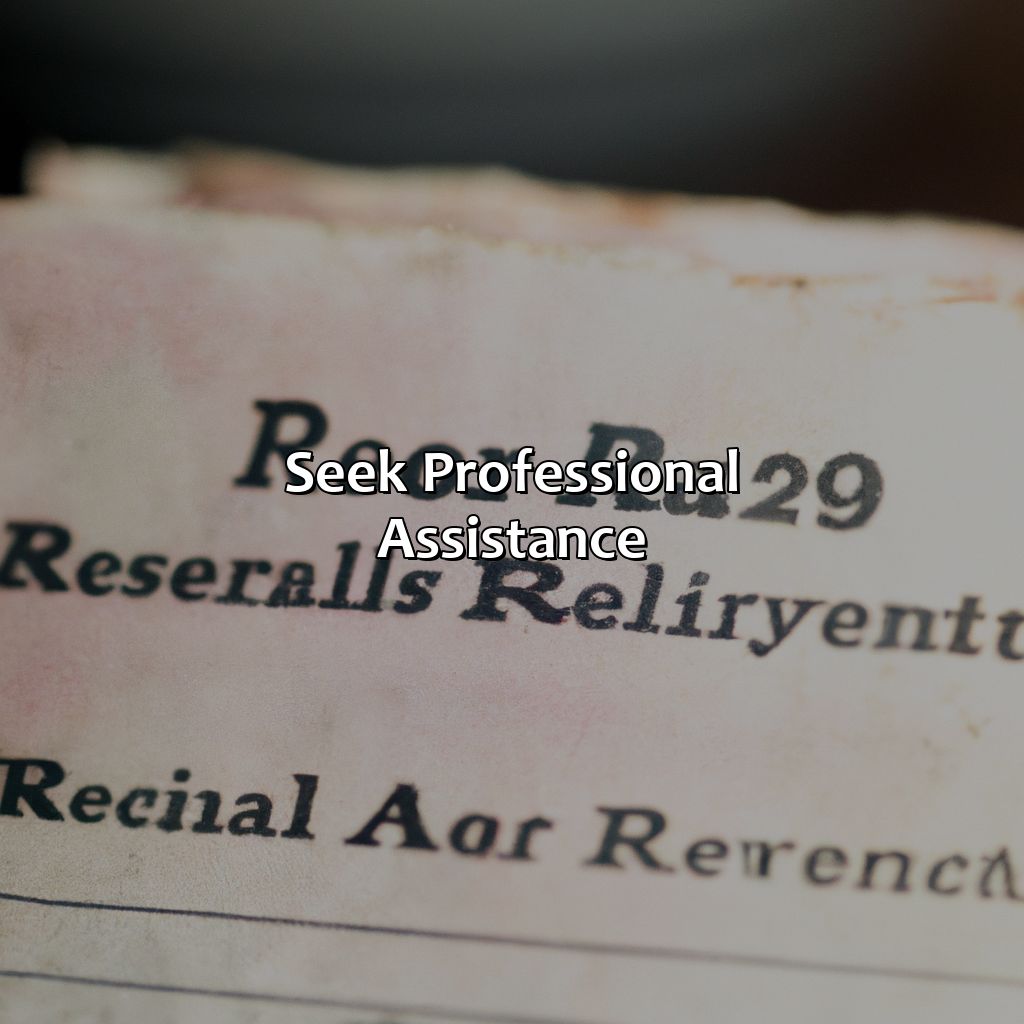
Image credits: retiregenz.com by James Arnold
Keep Track of Retirement Accounts
Retirement accounts are vital assets, and it is imperative to manage them efficiently. Keeping a record of your retirement accounts is crucial to keep track of their growth. It is essential to document all updates on the account, including the contribution amount and investment returns, to assess the long-term benefits accurately.
To efficiently manage and track your retirement accounts, ensure regular communication with your plan provider. Regularly monitor statements, ensure beneficiary designations are up-to-date, and consider consolidating accounts to streamline management. It is also valuable to review investment options and determine whether they align with your financial goals.
Consider rolling over old retirement accounts into your current 401(k) account or traditional IRA. Consolidating accounts can simplify the management process while providing better investment options and reduced fees. It is vital to understand the tax implications of rolling over accounts and seek professional advice if necessary.
Finally, ensure that you have a robust retirement plan and consider consulting a financial advisor to help manage your retirement accounts. By keeping track of your accounts, understanding investment options, and consolidating accounts, you can maximize the benefits of your retirement savings.
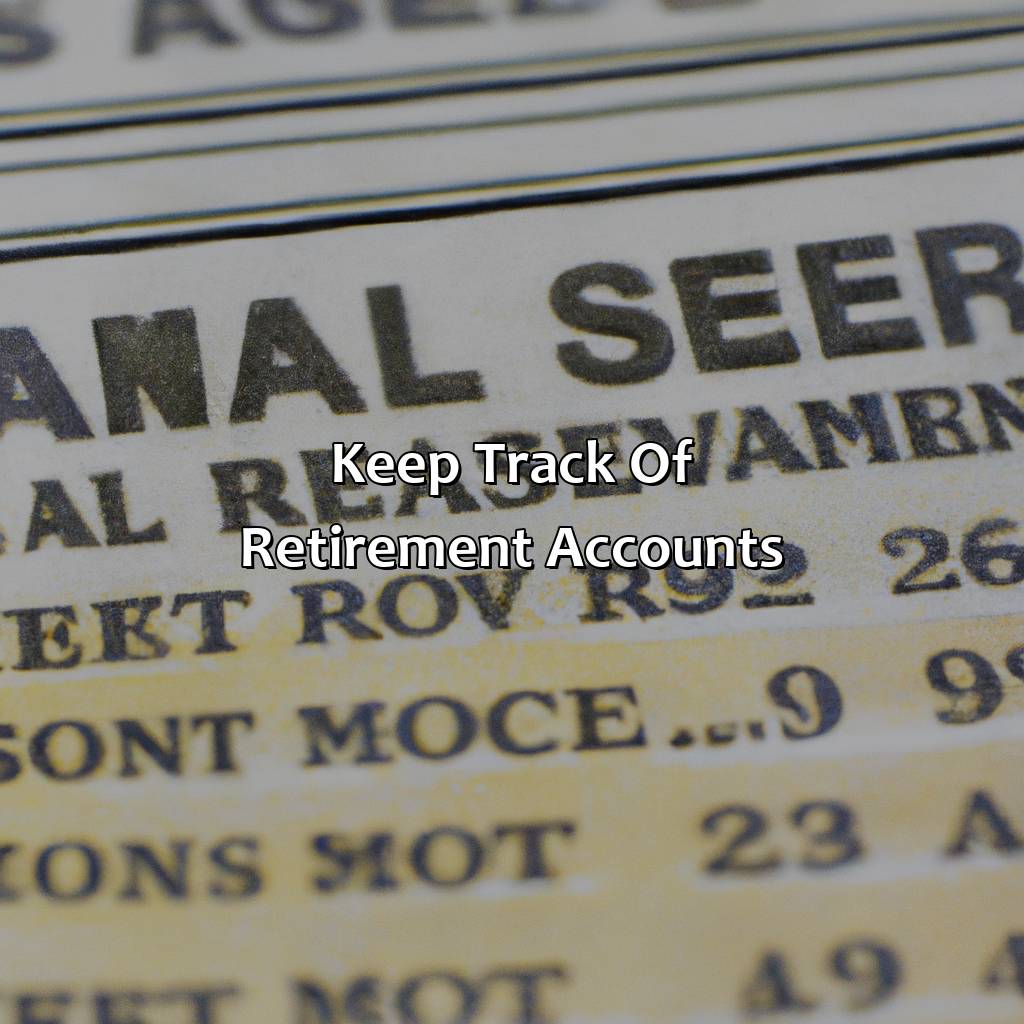
Image credits: retiregenz.com by Joel Jones
Five Facts About What To Do With Old Retirement Accounts:
You can leave your retirement account with your current employer, even if you leave that job. (Source: Forbes)
Rolling over your retirement account to an individual retirement account (IRA) may give you more investment options and greater control over your funds. (Source: Investopedia)
Consolidating multiple retirement accounts into one may simplify your finances and make it easier to track your investments. (Source: Fidelity Investments)
Taking a cash withdrawal from a retirement account before age 59 1/2 may result in early withdrawal penalties and taxes. (Source: The Balance)
Working with a financial advisor can help you make informed decisions about what to do with your old retirement accounts. (Source: U.S. News & World Report)
FAQs about What To Do With Old Retirement Accounts?
What are my options for handling old retirement accounts?
If you have old retirement accounts from previous employers or you’ve opened multiple IRAs over the years, you may wonder what to do with them. Your options include consolidating them, leaving them where they are, rolling them over to a new account or withdrawing the funds, but the right choice depends on your individual situation. It’s important to consider the tax implications of each option before making a decision.
What are the tax implications of withdrawing funds from old retirement accounts?
Withdrawing funds from an old retirement account before age 59 1/2 typically triggers a 10% penalty plus applicable taxes. Depending on your income, the amount you withdraw can also bump you into a higher tax bracket, resulting in a higher tax bill. This option should generally be a last resort, as it can significantly reduce your retirement savings.
What is a rollover and how does it work?
A rollover is when you move funds from an old retirement account to a new one, such as transferring money from a 401(k) to an IRA. This option allows you to consolidate your retirement savings and potentially take advantage of different investment options and lower fees. It’s important to follow IRS rollover rules to avoid unexpected taxes and penalties.
Is it better to consolidate old retirement accounts or leave them where they are?
It depends on your individual situation. Consolidating your retirement accounts can simplify your finances, but it may also result in higher fees or limited investment options. Leaving them where they are can be convenient, but it can also make it harder to manage your retirement savings and may result in a scattered investment strategy. Consider your needs and consult with a financial advisor to decide what’s best.
What should I consider when choosing a new retirement account?
When choosing a new retirement account, compare fees, investment options, and any penalties or restrictions. Consider your investment goals, risk tolerance, and preferred asset allocation. Look for a provider that has a strong reputation, offers great customer service, and provides educational resources to help you make informed investment decisions.
How can a financial advisor help me with my old retirement accounts?
A financial advisor can help you understand your retirement savings, evaluate your options, and develop a strategy to reach your retirement goals. They can also help you navigate complex tax and investment issues, and create personalized plans that align with your specific needs and preferences.
 Checkout this IRS Loophole
Checkout this IRS Loophole 
